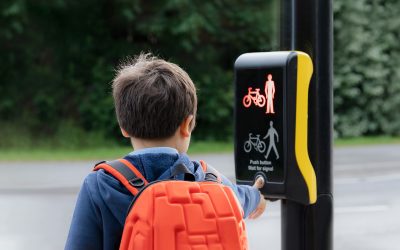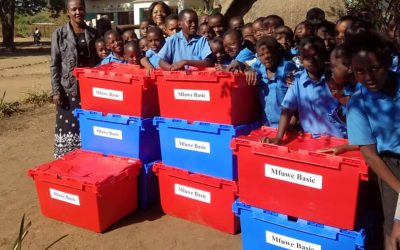In recent months, Beckenham Rotary has provided over 100 laptops to 16 local primary and infant schools for use by children who are now learning online from home.
This has been an ongoing project for the south-east London club, which is on the Kent border, who have said that they will continue to source and deliver laptops for as long as the need exists.
The idea came about when Rotarian Peter Braithwaite read a press article about a national shortage of school laptops.
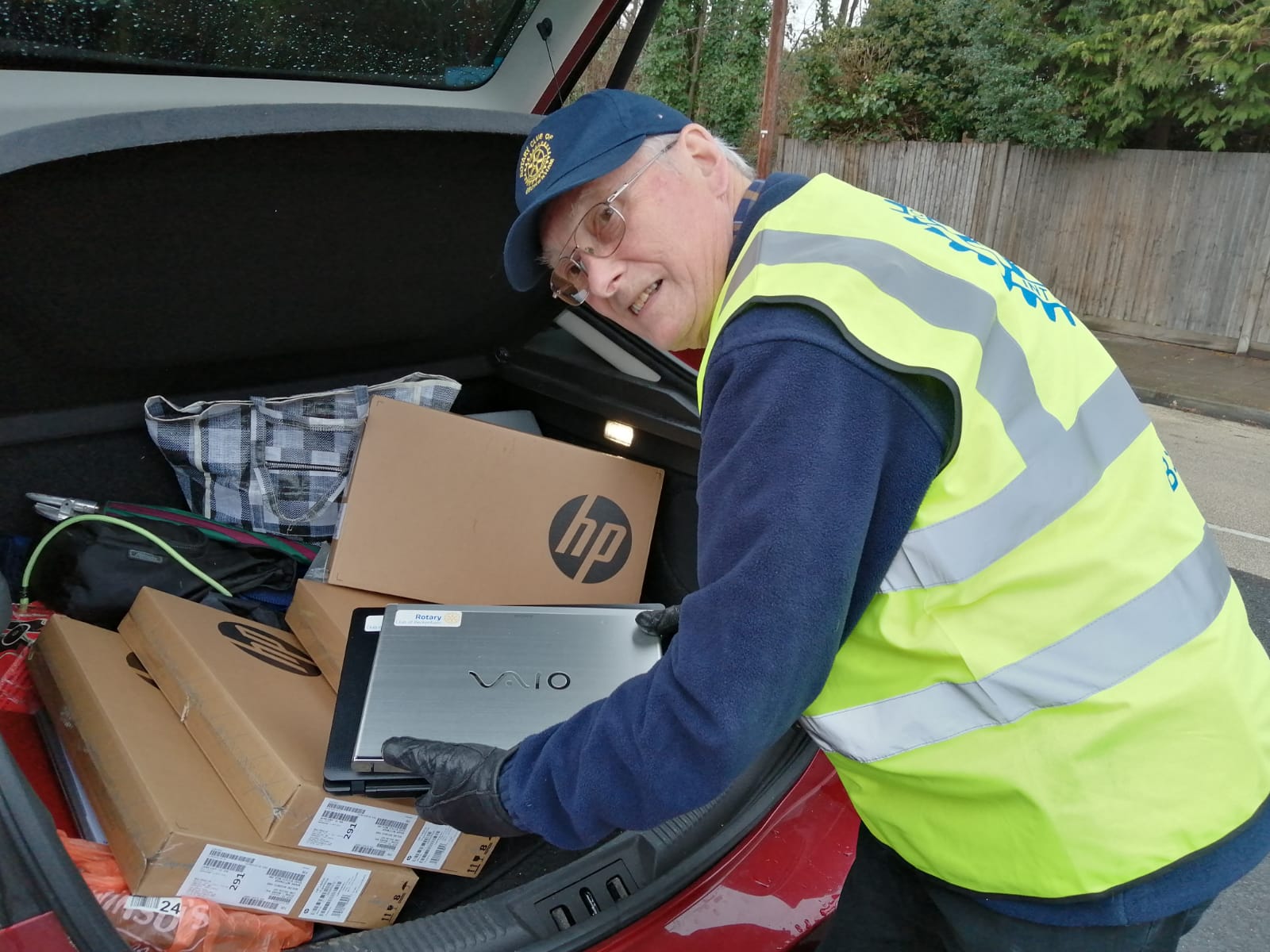

In recent months, Beckenham Rotary has provided over 100 laptops to 16 local primary and infant schools for use by children who are now learning online from home.
He decided this was something his Rotary club could help with. Local primary schools were contacted to establish that a need existed and appeals were launched for unused laptops
After a surprisingly good response to the appeals, Rotarian Christopher Bird undertook the task to check out each laptop, to wipe clean any previous data and to upgrade to Windows 10 Educational.
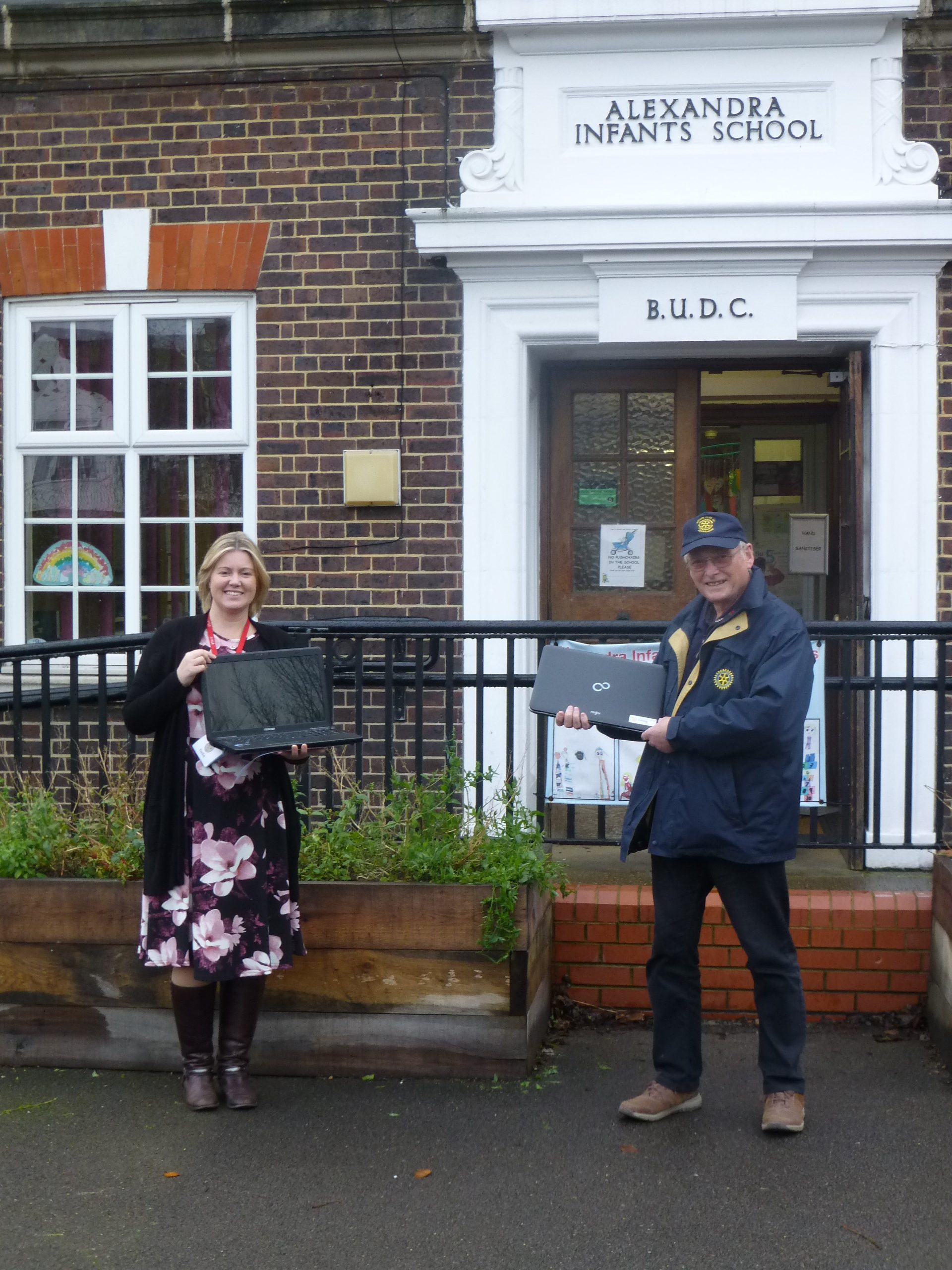

Initially two laptops were given to each of four local primary schools, to ensure they met the needs of the children.
Since then, over 100 laptops have been delivered to 16 primary schools. Each school has decided how best to allocate the laptops, according to the needs of their pupils.
This project has only been made possible thanks to the generosity of local residents and organisations, who provided their unused laptops for this cause.
A similar project has been operating in Nantwich in Cheshire.
As lockdown came suddenly for schools, many children had no laptops or way of receiving lessons.
Also, many teaching assistants were unable to support the teachers as they did not have laptops either.
This has been a particular challenge as many children need special one-to-one teaching, and it is a requirement that each online lesson has a teacher and a teaching assistant in attendance.
In response to this urgent need, Nantwich Rotary contacted The Laptop Shop in Nantwich and explained the challenge and the proposed solution.
Owner Peter Critton was tremendously supportive and helpful.
After a few phone calls and some local advertising, used and unwanted laptops started to arrive at the shop, which Peter and his team generously agreed to clean and set up at cost.
Generous financial donations were also made which covered Peter’s costs and enabled the purchase of additional laptops.
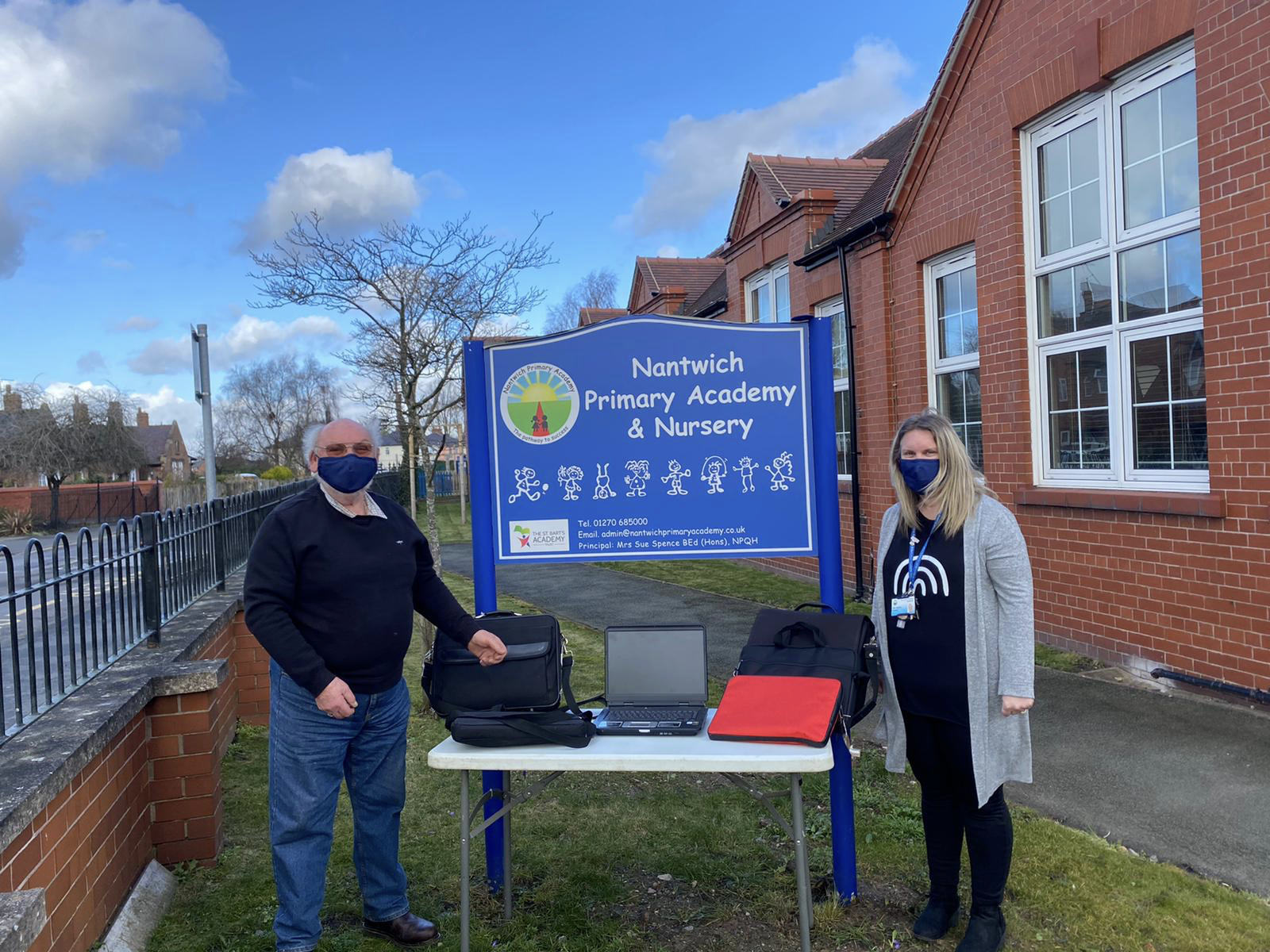

In response to this urgent need, Nantwich Rotary contacted The Laptop Shop in Nantwich and explained the challenge and the proposed solution.
Tony Hoy, Nantwich Rotary’s Acting President, offered to collect the laptops from people who had offered theirs to the cause.
Rotarian John Crowe who set up the appeal said: “The response has been fantastic, and in a short time we have had over 70 laptops for Peter at the laptop shop to sort through, wipe clean and set up ready for school use.
“Within two weeks we donated and delivered 25 laptops to the Nantwich Primary Academy and hope to deliver more to other schools too.”
Mrs Julia McGhie, the Special Needs Co-ordinator at Nantwich Primary Academy said: “This has been a fantastic and rapid response from Nantwich Rotary.
The response has been fantastic, and in a short time we have had over 70 laptops for Peter at the laptop shop to sort through, wipe clean and set up ready for school use.”
“It has made such a difference for our children and we have arranged our lessons so they don’t clash, which means that more than more one child in each family can use the laptops in one day.
“When the lockdown is over and the children return to school, the laptops will be returned to the school and used for one-to-one teaching and computer studies.”
In the Heart of England District, Rotarians have organised a peace pole competition for schoolchildren in the Midlands.
The project, launched last month, gives pupils the opportunity to design a Peace Garden. Using the Peace Pole as a focal point, to create an area in the school that will serve as a place of reflection and tranquillity, but also as an interactive learning environment.
Each school will enter its design into the Rotary competition and the winning designs will be awarded a Peace Pole to their unique design.
The project, launched last month, gives pupils the opportunity to design a Peace Garden. Using the Peace Pole as a focal point, to create an area in the school that will serve as a place of reflection and tranquillity, but also as an interactive learning environment.”
Organiser Margaret Morley said: “We hope this competition offers an opportunity to stimulate discussion on what peace means to young people and to share great ideas.”
Accepted as an international symbol of peace, peace poles originated in Japan following Second World War. Over 250,000 eight-foot poles have been planted worldwide conveying the simple but powerful message “may peace prevail on earth”.








